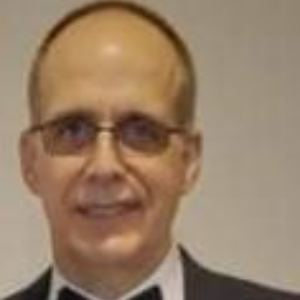Title : Traditional approaches versus complementary/Alternative therapies to manage breakthrough atrial fibrillation
Abstract:
Purpose Atrial fibrillation (AF) is the most common type of heart arrhythmia and can exacerbate the risks of ischemic stroke, heart failure, prolonged hospitalization, and sudden death. Traditional treatment strategies (e.g., medications, cardiac ablation) can be expensive and may intensify the incidence of treatment-related complications. Data-based literature has demonstrated that holistic approaches can be just as efficacious, minimally invasive and less costly. The use of traditional Chinese Medicine (TCM) practices (e.g., acupuncture) have gained more popularity and integration into western medicine in recent years. While acupuncture is not without potential risks, its use as an adjunctive intervention following ablation has demonstrated efficacy in reducing the incidence of AF breakthrough. The purpose of this nurse-driven, evidence-based practice (EBP) project was to gain insight from data-based literature to integrate with providers’ experiential knowledge about traditional and TCM practices in the management of AF. 2 Description The PICO question that guided this exploration of the salient literature was, “Among adults with a history of atrial fibrillation (P), are complementary/alternative medical therapies (I) as effective in decreasing the incidence of breakthrough atrial dysrhythmias (O) as traditional approaches (e.g., medications, ablation) used to reduce rhythm abnormalities (C)?” Fifty research and non-research articles were initially retrieved using CINAHL, PubMed and Nursing Reference Center Plus. After duplicates were eliminated, 16 articles (11 research; five non-research) met the specific inclusion parameters and were critically appraised using the Johns Hopkins EBP criteria. Each article was independently evaluated by at least two team members. Rating discrepancies were resolved by team consensus. Evaluation/Outcomes Effects of electroacupuncture (EA) at Pericardium 6 (PC-6) acupuncture point on heart function can be detected and quantified by equilibrium radionuclide angiocardiography (ERNA). EA at PC-6 improved heart function (heart motion coordination). Acupuncture has a therapeutic effect, decreases heart rate and blood pressure in patients with atrial fibrillation, and its application, in conjunction with pharmacological intervention, should be considered. While acupuncture has shown promise as a mono-therapy, its use in combination with pharmacological treatment or following cardiac ablation may be the most ideal mechanism for managing breakthrough AF. Nurses are well positioned to foster improvements and promote the healthcare teams’ incorporation of acupuncture in diminishing AF. Published evidence, combined with experiential knowledge, enriches nurses’ awareness of data-based evidence that enhances the care of these vulnerable patients.



